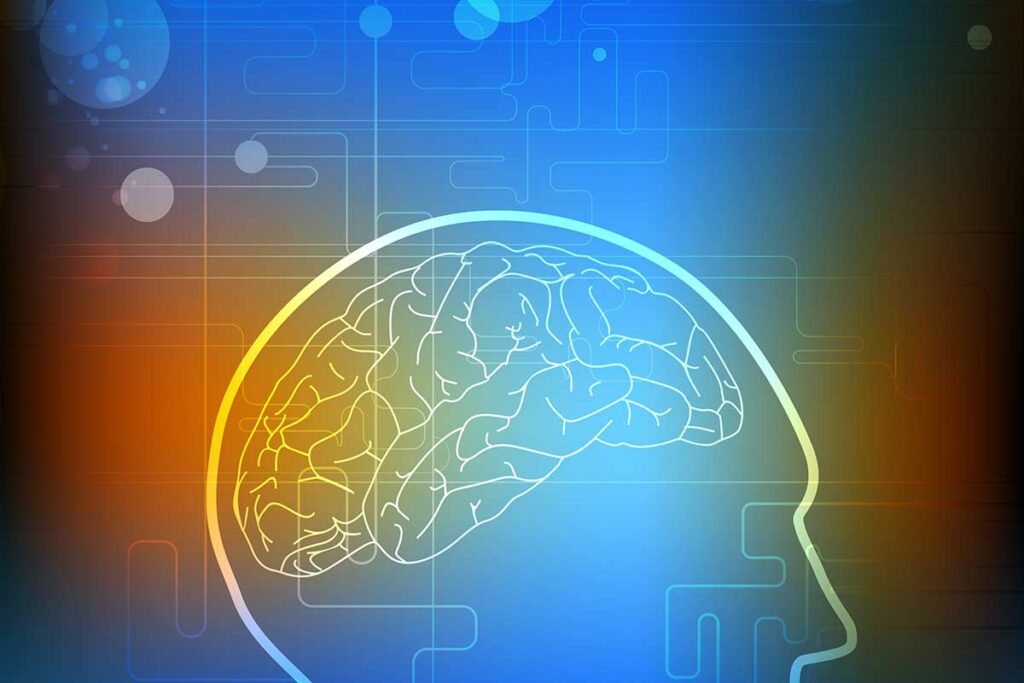
At first it may sound and look a bit zany. Having electrodes placed on one’s head in a “brain imaging” session? Wearing a magnetic coil over one’s scalp to receive small, magnetic pulses to targeted areas of the brain? As silly as it might sound, the more they become available these treatments are helping more and more people with anxiety and depression.
These “Neuro Therapies” are revolutionary because they work by using the brain’s own superpower—neuroplasticity, or the ability to change and heal itself—to achieve quicker, deeper healing of anxiety and depression. And, where medications may cause unpleasant side effects or aren’t tolerable or effective, Neuro Treatments are non-invasive, causing few if any side effects for most people.
If it sounds too good to be true, what follows is a closer look at some of the research into the impact of Neuro Therapy on depression, anxiety, and how these conditions are being treated in the 21st century.
How Neuro Therapies Relieve Depression
Globally, at least 264 people of all ages suffer from depression, the World Health Organization reported in 2020. The mental health disorder is a leading cause of death and disability worldwide. Consequently, research into what causes depression, relieves its symptoms, and is the most effective treatment for achieving remission is an ongoing pursuit with much yet to learn.
Neuro therapies, or a combination of neurofeedback and neurostimulation (what we offer at Sun Health), are a new and exciting avenue in these research efforts. Numerous studies, including our own, have marshalled persuasive evidence suggesting that Neuro Therapies not only help to alleviate depressive symptoms— they may in fact achieve remission and strengthen the brain’s resilience to major depressive disorder.
When our Director of Neuro Therapy Dr. Nicholas Dogris conducted a study of patients in drug and alcohol detox who received a particular type of neurostimulation, transcranial alternating current stimulation (tACS), he was able to quantifiably track a reduction in both depression and anxiety. He also found quantifiable improvements in sleep. (Sleep problems such as insomnia are a common feature both both anxiety and depression.) In other words, after Neuro Therapy, the brains of these patients actually looked healthier and more balanced on an imaging scan.
More Research Into Neuro Treatments for Depression
Research elsewhere has revealed similarly positive findings regarding neuro therapies and depression:
- Depression is associated with poor connectivity between brain regions. However, just one session of neurofeedback improved connectivity for patients with major depressive disorder, according to a study in the journal Neuroimage. When patients were asked to think of a guilt-related memory and then received positive reinforcement, via neurofeedback, when they successfully reframed the memory, the result was both strengthened brain connections and higher self-esteem.
- As many as one-third of people with major depressive disorder have “treatment-resistant depression,” typically meaning that medications have not been effective for their symptoms or helped achieve remission. Promisingly, though, the conclusion of multiple studies is that many of these patients have found relief from neurofeedback and/or neurostimulation.
How Neuro Therapy Can Treat Anxiety Disorders
Neuro therapies have also been utilized to safely and effectively treat anxiety disorders, which like depression are among the most common mental health problems worldwide:
- Women with phobias of spiders achieved lower anxiety levels when administered a particular type of neurofeedback, a 2015 study in the journal Frontiers of Behavioral Neuroscience found.
- When they received a slightly different type of neurofeedback, patients with PTSD also reported lower anxiety, in a 2009 study.
- And, psychiatric patients whose different diagnoses shared the common feature of severe anxiety, all showed improvements and reductions after neuro therapy, in a 2010 study in Individual Psychiatry.
These are some of the ways that research is vindicating the use of Neuro Therapy to help the millions of Americans who suffer from debilitating anxiety and depression. The more people are turning to these therapies for relief, the more people are coming back.
In some cases, Neuro Therapy serves as an effective, standalone alternative to medications that haven’t worked; in other cases— it’s a helpful adjunct intervention that boosts the anti-anxiety and antidepressant effects of a medication such as Prozac. Either way, Neuro Therapy is expanding the frontier of hope for people with anxiety and depression.
Curious whether Neuro Therapy can help you?
Call us today for answers.
This article has been medically reviewed by our staff at Sun Health Medical Center in Deerfield Beach, Florida.
